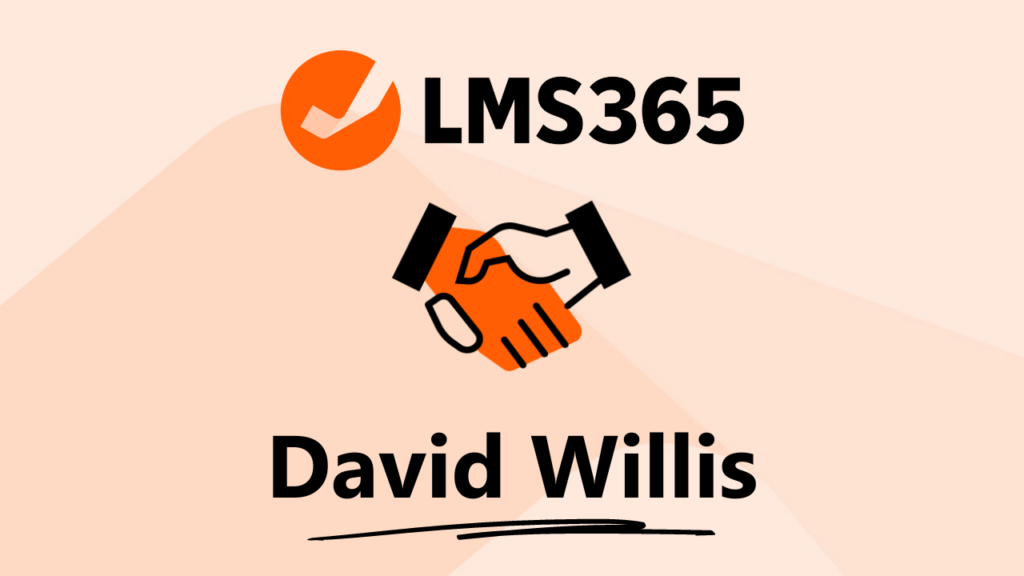Setting targets for your business seems like it should be the simplest thing in the world. Pick the thing you want to do, figure out the time-frame and go. But if you want consistent results, you need more than just a slapdash approach. We’re looking at why goal setting is important and the benefits of OKRs for your business.
At Zensai, we offer a choice of SMART Goals or OKRs. They’re easily two of the most popular options, but not your only choices when it comes to team management. But what do the experts say?
1: Founder of Outcome Edge, Felipe Castro
Felipe Castro is a professional OKR trainer, and creator of the OKR Cycle. So, as you can imagine, he’s got plenty to say about this particular form of goal-setting. Let’s start with the cycle he came up with.
Felipe designed his OKR Cycle to combat the romanticizing of Objectives and Key Results. With what he calls “romantic OKR,” the quality of target outcomes don’t matter. Their alignment to business aims is irrelevant. Obviously, expecting OKRs like these to work is pretty unrealistic.
‘In Romantic OKR there is also no need to track your OKRs. Just set them at the beginning of the quarter and “grade” them at the end, as if the Silicon Valley fairy dust would take care of your results for you. It’s the “Set it, Forget it, and Grade it” model.’
As a counterpoint to this, Felipe’s cycle contains three steps:
- Set: Choosing the objectives to focus on. They should be valuable, engaging and actionable.
- Align: Teams propose their planned OKRs to managers, who review and coach them for improvement. If necessary, teams revert to the “set” stage before re-attempting alignment.
- Achieve: With goals set and aligned, it’s time to start progressing them. Felipe stresses the importance of monitoring progress through regular check-ins.
Of course, this is just scratching the surface of Felipe’s OKR content. If you want to learn more about the benefits of OKRs, we recommend checking out his website.
2: Leadership coach and former Navy SEAL, Jeff Boss
As an ex-Navy SEAL, Jeff Boss is exactly the sort of person you should listen to when it comes to discipline and self-motivation. In this Forbes piece about SMART Goals, he lays out the five reasons why goal setting is important:
- Goals trigger behavior. General aims are non-committal. Ambitious, specific aims help motivate you.
- They guide your focus. Finishing one step clues you in on what the next should be.
- Setting goals sustains momentum. The satisfaction of reaching one milestone spurs you onto the next.
- Goal setting promotes self-mastery. With each milestone, you become more self-disciplined, and capable of going that extra distance.
‘Perhaps the most important reason why goals work is because they build character. Actually, achieving goals builds character. While the process of goal setting is important because it helps unearth and identify what’s truly important to you, pursuing your goals is the real money-maker (literally and figuratively) because it builds self-efficacy; it develops yourself as the type of person who can achieve goals.’
3: Google co-founder and Alphabet CEO, Larry Page
OKRs are often credited with playing a key role in Google’s meteoric rise. So, what does the company’s co-founder have to say about the benefits of OKRs?
Well, Larry gave a quote on the matter in John Doerr’s book, “Measure What Matters”:
‘As much as I hate process, good ideas with great execution are how you make magic. And that’s where OKRs come in. OKRs have helped lead us to 10x growth, many times over. They’ve helped make our crazily bold mission of “organizing the world’s information” perhaps even achievable. They’ve kept me and the rest of the company on time and on track when it mattered the most.’
So, are OKRs a magic bullet? A useful tool, maybe. But according to our next expert, they’re not without issues.
4: Business consultant and keynote speaker, Jeff Gothelf
Jeff Gothelf specialises in helping businesses to improve their workplace cultures. But he’s also found the time to co-author two books, “Lean UX,” and “Sense & Respond.”
Jeff takes something of a realist’s view of OKRs. He’s keenly aware of their benefits:
‘This approach keeps planning and progress-tracking focused on the impact the work is having, rather than micromanaging the specific work that teams are doing on a daily basis. Because of this, it is an effective mechanism for aligning top-down strategy with bottom-up, team-level commitments to intermediate goals in support of that strategy. The strength of OKRs explicitly lies in de-emphasizing specific tasks, and instead emphasizing the value that those tasks deliver.’
But he also succinctly points out their major flaw. While one of the benefits of OKRs is aligning people across the business, they’re less useful for individuals. OKRs can be useful in our personal lives. But at work, individual OKRs generally lead to one of two outcomes:
- They create shallow, binary goals that don’t give any indication of growth or development.
- They choose targets that don’t challenge them, turning the whole thing into a worthless box-ticking exercise.
‘But in the workplace, OKRs are a team-based goal setting methodology. A shared objective and quantifiable metrics can help a team to coordinate their activities, align with stakeholders, and act with more than just their own immediate goals in mind.’
5: Founder of LeadershipIQ, Mark Murphy
As an accessible approach to objective-setting, SMART Goals are very popular and very useful. But Mark Murphy has his share of criticisms for them. Because it’s not just about asking, “Why is goal-setting important?” but also asking which approach is best for you.
‘Now, some of those criteria (like Specific and Measurable) are perfectly fine. But other parts (like Achievable and Realistic) make SMART goals pretty dumb. Why? Because too often they act as impediments to, not enablers of, bold action, and actually encourage mediocre and poor performance.
‘“Hold on a minute,” achievable and realistic SMART goals seem to say. “Don’t push beyond your resources, don’t bite off more than you can chew, play it safe and stay within your limitations.”’
People often laud SMART Goals for their ability to make complex tasks way more approachable. But Mark’s comments run in opposition to that. He’s saying that the SMART rationale stops you from pushing yourself.
Mark points out that our greatest achievements are usually the most difficult using the example of prepping for a marathon. Do you play it safe? No. You push yourself more and more each time, until eventually, you go further than you ever thought you would.
6: Big Kahuna at Marketing Mana LLC, Alexis Rago
Now that we’ve taken a critical look at SMART Goals, let’s look at what you need to do to use them effectively. In her LinkedIn article, Alexis Rago stresses the importance of a proper action plan with ongoing feedback.
‘Great, you now have a SMART goal. However, a goal without a plan is just a wish. An action plan is a roadmap for your strategies, tactics, and tasks that are chunked into actionable items.’
This is the inherent point of why goal setting is important. By breaking a project down into its simplest parts gives you an easy roadmap for how to proceed. And by taking things one step at a time, you leave yourself receptive to feedback.
‘The sooner you can embrace that you don’t need to know the whole plan, but have a minimal viable service or product to test, do so. Take the opportunity to ask for feedback during research and alpha/beta launches. You have to ask, take action, and give people something that they can respond to.’
7: Founder and Managing Director of Agile Strategies, Daniel Montgomery
As the managing director for a company specializing in OKR training, Daniel Montgomery has a lot of valuable insight. He wrote the book, “Start Less, Finish More: Building Strategic Agility with Objectives and Key Results.”
Along with outlining the importance of strategic thinking in the introduction, Daniel explains the benefits of OKRs for him:
‘By discovering objectives and key results (OKRs), I found the link between strategy and operational execution. Here was a work management practice that had a deep kinship with Agile but had a simpler format that was applicable to all business functions at every level in the organization. It was a simple, fast-cadenced goal-setting process that built agility, employee engagement, and learning.’
“Start Less, Finish More” is Daniel’s how-to guide for thinking strategically and making OKRs work for you. The book’s introduction if freely available on the Agile Strategies website.
8: Forbes contributor Kimberlee Leonard and editor Rob Watts
As content creators for Forbes Advisor, Kimberlee and Rob created their Ultimate Guide to SMART Goals. Along with the usual acronym synopsis, their guide establishes why goal setting is important and breaks down the benefits of SMART Goals in particular:
‘First, a S.M.A.R.T. goal helps to give you an objective. In doing this, you are able to identify strengths and weaknesses. Second, a S.M.A.R.T. goal provides motivation to succeed. When you know where the goal line is, you’ll want to work to meet or beat it. Third, a good S.M.A.R.T. goal, while attainable, will also be challenging and force you out of your comfort zone.’
But they also acknowledge its disadvantages:
‘By focusing on the S.MA.R.T. goal, you may overlook other areas of the business. There may be other tasks that command attention but the focus on the goal could overshadow them and leave other things undone. In addition to that, the S.M.A.R.T. goal can put a lot of pressure on people to succeed. You don’t want to set goals that people can’t achieve. It’s important to manage expectations and keep goals attainable to avoid burnout and morale issues.’
9: Super investor and early supporter of Google & Amazon, John Doerr
So chances are you know the name. You may well have caught his excellent TED talk. Or maybe you have a copy of his New York Times Bestseller, Measure What Matters (the definitive guide to OKRs). Whether you’re aware of John or not, he’s definitely someone you want to listen to when it comes to goal-setting and the benefits of OKRs.
Here’s his take on the benefits of OKRs:
“Objectives and Key Results, or OKRs, are a simple goal-setting system and they work for organizations, they work for teams, they even work for individuals. The objectives are what you want to have accomplished. The key results are how I’m going to get that done. Objectives. Key results. What and how.”
“Now, I think of OKRs as transparent vessels that are made from the whats and hows of our ambitions. What really matters is the why that we pour into those vessels. That’s why we do our work. OKRs are not a silver bullet. They’re not going to be a substitute for a strong culture or for stronger leadership, but when those fundamentals are in place, they can take you to the mountaintop.”
10: U2 frontman and philanthropist, Bono
Bet you didn’t expect to see that name crop up when you clicked on our article right?
Well when he’s not in the studio, Bono spends a lot of time working with some of the leading charities and third-sector organisations from around the globe. And whilst working with these companies he’s spotted huge benefits of OKRs:
“So you’re passionate? How passionate? What actions does your passion lead you to do? If the heart doesn’t find a perfect rhyme with the head, then your passion means nothing. The OKR framework cultivates the madness, the chemistry contained inside it. It gives us an environment for risk, for trust, where failing is not a fireable offence. And when you have that sort of structure and environment and the right people, magic is around the corner.”
So, we’ve examined why goal setting is important. We’ve looked into expert opinions on both goals and OKRs. Figuring out the best option for you isn’t always easy. You’ve got to take a frank look at your work culture and your team to understand what works best. But don’t be in any doubt, whatever the form, goal setting is key to your organisation’s success.








